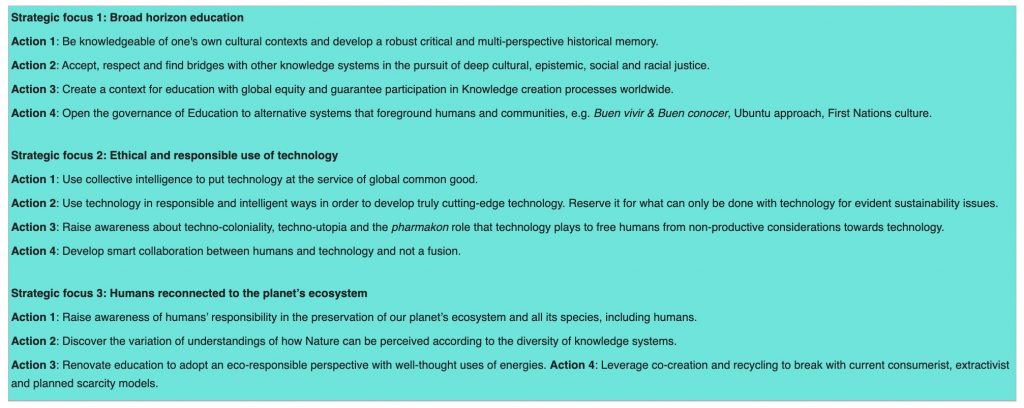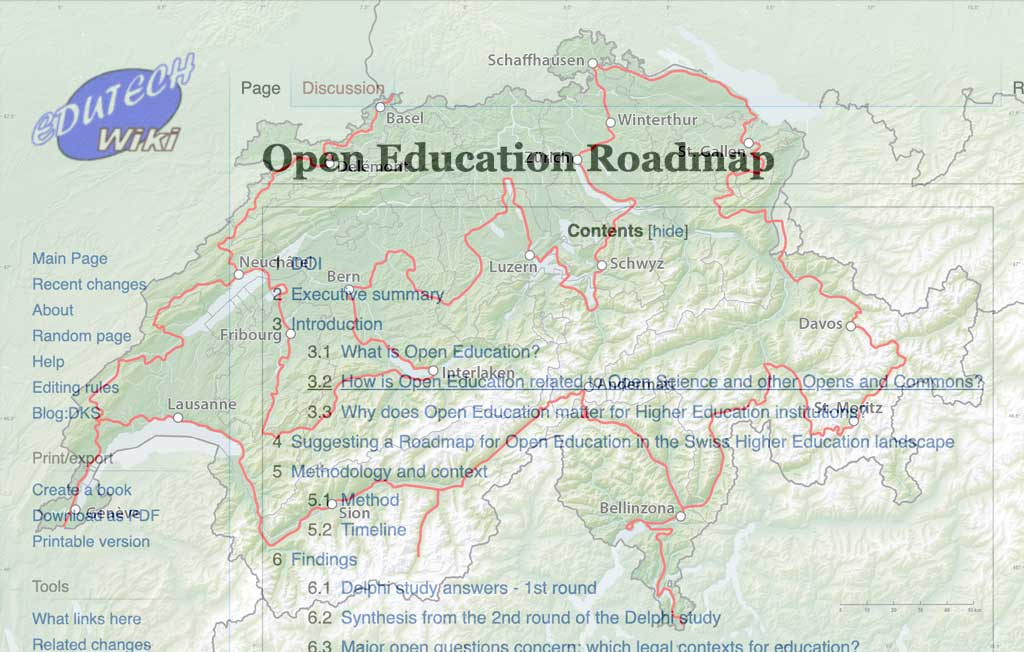A most interesting aspect of openness when it generates positive acts of unintentional serendipity. My initial post for this series was a draft that accidentally got published early. And I was not aware that our web site was experimenting with a means to publish posts into our OEG Connect community space (here it landed), until I saw a notification message. And that was shortly followed by a message from Barbara Class sharing what is our first post in this series.
Barbara shared “A Roadmap for Open Education in Switzerland” a collaboration she led that has produced this guide to provide the Swiss people a path to reach a vision of what education in general would look like in 50 years. The process in developing the guide addressed questions of “What is Open Education? How is it related to Open Science and other Opens and Commons? Why does it matter for Higher Education institutions? Why does Open Education matter for each and every citizen?” and was completed over 9 months including via a visioning exercise, a Delphi study with worldwide Open Education experts, and much review of the culture and practices of Switzerland.
The roadmap itself includes three strategic Focus areas each with a set of four action areas, all aimed at “Enabling legal, societal, political, economic and institutional ecosystems to support Openness and a renewed approach to Commons.”

I find it worth noting the framing of this national strategy in the way Open Education is related to Open Science, Openness in general, and the idea of the Commons.
Education is at a crossroads striving for more social oriented forms with collaborative practices and commoning perceived as opportunities to move forward (Le Crosnier, 2017). Switzerland is a fertile ground to revive and reinvent commoning because it can build on its historical background with natural commons. Commoning represents also a very interesting political structure that empowers citizens and communities (Haller et al., 2021). This is important because political choices do influence HEIs’ path and are critical in terms of bifurcations (Kauko, 2014). In addition, it makes sense that main actors, i.e. citizens and communities, for whom education is being designed are involved in bargaining powers. Education is considered a knowledge commons (Hess et Ostrom, 2007) and can benefit from the experience with natural commons management.
How is Open Education related to Open Science and other Opens and Commons?
We hope you take some time to explore the roadmap, make use of the resources and also the methodology sections. Bring your questions to OEG Connect and consider asking what a roadmap for Open Education might look like for your country, region, or organization.
Barbara shared a few more items of interest:
- Education Ouverte et Libre – Open Education – a multilingual (in the 6 UN languages) scientific journal that aims to reflect, discuss and think about Open Education issues at the international level.
- A special issue of Frontiers in Education on Open Education for Sustainable Development: Contributions from Emerging Technologies and Educational Innovation has includes 9 very different yet relevant articles for the OEGlobal community.
Do you have something we should add to our World of OEGlobal map? Tell us! Please reply to our query in OEG Connect or share your own item as a new topic for in the Spotlight area.
And thank you Barbara for being the first to share in this blog series– it looks like our next stop is going to be Santiago, Chile.
Join the Discussion in OEG Connect
Read the latest responses to this post below and join in on a discussion of the Open Education Roadmap.
Featured Image:
